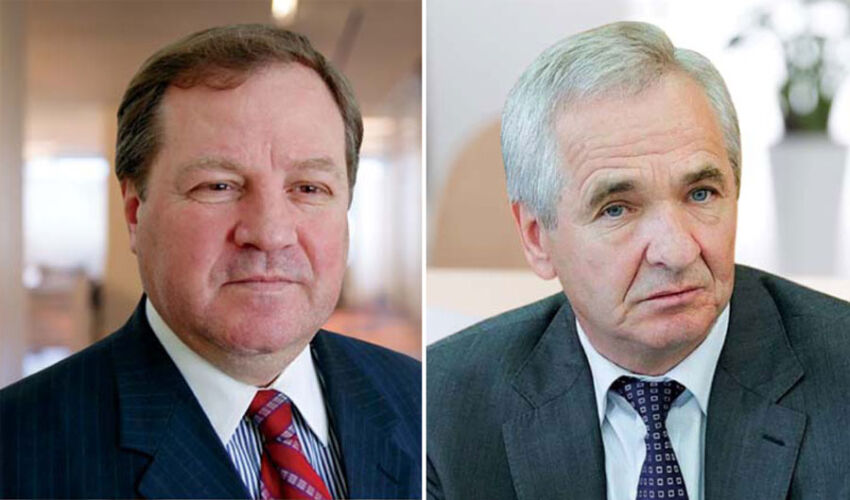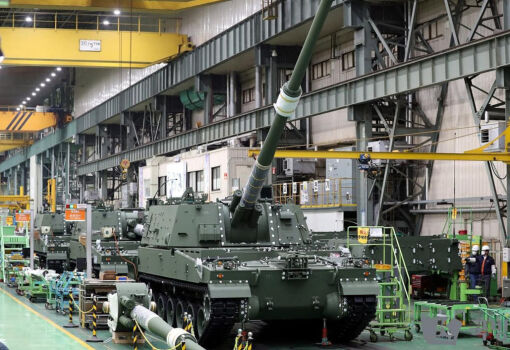
Michael Manoli, Gregore Gaberi
“Only” 5 years
Next year will mark the 25th anniversary of Moldova’s accession to the WTO. The negotiation process consisted of 11 rounds and lasted five years. The Ministry of Economy was responsible for it. At first, the meetings in Geneva took place every six months, because our legal framework at that time still contained a lot of laws and regulations adopted in the Soviet Union. They had to be reviewed and a new legal framework had to be developed.
“When a country joins the WTO, a curator from a country that is already a member of this organization is appointed for its negotiating team,” says former Finance Minister Mihail Manoli. – For Moldova, it was India’s ambassador to Bulgaria. Usually, one part of the countries immediately agrees to accept a new member and signs bilateral agreements. But others have some claims and questions and request bilateral negotiations. Such negotiations with Moldova were requested by 37 countries. Some considered us as a competitor, others – as a potential market. During this process, there are usually two teams from the candidate country: one in Geneva (where the WTO headquarters are located) and the other in their country. We had only one team, which came to the negotiations and then left to do the “homework”. It bore all the responsibility and burden. The parliament and the government made new decisions. Information about this was passed on to the curator, who informed each country that set us a specific task. And we prepared the next round of negotiations.
During those years we completely revised the entire legislative base and brought it in line with the WTO rules. We had to cover all areas of the economy, including those that we did not even have, but they were still mentioned in the Agreement.
To join the WTO it is necessary to have a certain taxation system, including VAT. Of all the WTO member countries, only the USA does not apply VAT (there is a sales tax). At that time Moldova worked in two taxation systems. In trade with the CIS, we imposed VAT on exports, but not on imports. With the rest of the world – vice versa: VAT was applied to imports, but not to exports. In the field of taxation, we started with the development of a new Tax Code.
The WTO applies the right of veto, i.e. if at least one country is against the entry of a candidate, it means that he will never join this organization. And each country closely monitors that its interests in trade are not violated. So there is a lot of emphasis on intellectual property and trademark issues. Discussions had to be held on this section with all 37 countries that wanted bilateral negotiations. All of them wanted a guarantee that Moldova would protect their intellectual property. For example, the Bulgarians demanded that we give, through a legislative act, a guarantee of protection for a type of cheese called “kashkaval”, which is produced in the Balkans. They also export “Moldovan appetizer”.
Cleverness helped
Of the 11 rounds of negotiations, three were devoted to agriculture, as Moldova is an agricultural country. The main issue in these discussions was subsidization. The WTO sets a threshold of subsidization of the agricultural sector for each country – a certain percentage of its GDP. To calculate this threshold, data on subsidies in that country are taken by year for the last five years. Moldova also had to provide such data. However, our country has never had such a form of support for agricultural enterprises.
Since it was impossible to provide information on direct subsidies, we had an idea to present the debts of former state and collective farms written off by parliament as support from the state budget for the agricultural sector,” says former Deputy Economy Minister Gheorghe Gaberi. – And the amount was astronomical, even in rubles. We converted it into dollars at the exchange rate in effect at the time and presented this data before the delegations arrived for the third round of negotiations on agrarian policy. During the negotiations themselves, the U.S. representative sharply objected. After that, I had to make a statement that we are demanded what functions in a market economy, and we came from a planned economy, and we never had it. If you do not support Moldova to follow the market course, then there is probably no point in coming here anymore. In the end, we got the right to subsidize agriculture on very good terms – up to 5% of GDP, which is a lot. Moldova will not be able to afford to spend such an amount on subsidies in agriculture, but it has the right”.
When all the issues were removed, at the last, 11th round of negotiations, India, represented by our curator, made a surprise by demanding a written guarantee of visa-free entry of Indian programmers to Moldova. But such guarantees can be given only by the law, which must be amended. The chief negotiator had to go out into the corridor and call the President of the Republic of Moldova Lucinschi, who authorized it. But, as they say, to promise is not to marry.
The agreement on Moldova’s accession to the WTO was signed on May 8, 2001. In June, the Moldovan Parliament ratified it.
How to use it?
According to the interlocutor, there were very high expectations with the accession to the WTO. We received a wonderful tool to bring order to the country’s economy, to ensure transparency in public procurement (we have never had such experience), to eliminate corruption, etc. If they were observed, of course. One of the most important advantages of our country’s accession to the WTO is that after that it was able to start negotiations with the EU on trade preferences, which were granted to RM on many commodity items.
However, the opposition reproached that local producers would not be protected, because import duties were low – not higher than 15%. But Moldova had a Free Trade Agreement with the CIS countries, then signed a similar agreement CEFTA (southern Europe), in 2014. – The EU-RM Comprehensive and Deep Deep Free Trade Agreement (DCFTA). We should not forget that trading partners make symmetrical decisions, and our economy is export-oriented.
“When I cited export/import data from the rostrum of Parliament, critics agreed,” says Gheorghe Gaberi. – WTO rules contain many measures to protect their producer and consumer. For example, you can set seasonal high duties, but you have to justify them. You can stop imports at any time if a product poses a health risk. I speak as a person who spent five years in ANSA. There are leftovers imported to Moldova that are not sold somewhere. These products end up on our market because of unscrupulous entrepreneurs. Let’s recall the scandal with dairy products in 2018, when 80% of fats of vegetable origin were found in the milk of one factory. And when samples were sent for testing to Parma (Italy), it turned out that these vegetable fats were technical. The authorities have enough tools to prevent this from entering the market. The Ministry of Economy should have a person who knows these rules and can propose to the government to apply them”.
In his opinion, the producer should be protected by creating conditions for competitiveness, using state support. The cost of Moldovan production is negatively affected by the cost of labor, which, as it turned out, is the most expensive in Europe. In the structure of the cost of goods in Romania the share of labor is 18%, in Moldova – 37%. We need to stimulate the growth of labor productivity through automation and mechanization.
We need to evaluate
In addition, we need to assess what is profitable for us to produce. For example, dairy farming in Moldova is a utopia, because we cannot afford to grow fodder on irrigated land as before. For domestic consumption, we should have our own dairy production for social purposes and support it, because it cannot compete with either Belarusian or Lithuanian products.
Grains are not for us either, because our neighbors – Romania and Ukraine – are among the largest grain producers in Europe. It is necessary to have grain crops if one entity cultivates at least 1 thousand hectares of land in order not to be unprofitable. Grain crops should be used to preserve soil fertility. Moldova should produce not grain, but grain seeds. In 2024, our agricultural enterprises imported corn and sunflower seeds worth 1.8 billion lei, while Moldova produced hybrid corn seeds. It is possible to get a yield of 4 tons/ha of hybrid corn seeds. One gross ton of seeds costs 1 thousand euros, i.e. 4 thousand euros/ha. If you do calibration, germination testing – even more expensive. But our farmers grow corn at 2-3 tons per hectare and sell it for 200 euros per ton, minus costs, and they have no profit.
If we create 100 thousand hectares of orchards and vineyards of table varieties, we can fully provide people living in villages with work. Only 10 thousand hectares of table vineyards on the pergola system, with a yield of 30 tons/ha give 300 thousand tons of grapes. For each hectare there is a minimum of one worker plus three workers from related activities.
Besides agriculture, it is necessary to develop the IT sector, call centers, communication services (there was a proposal to move the communication center between the American and European continents to RM, but corruption prevented it), outsourced accounting for foreign companies (there is experience in working with the USA), design of residential and industrial buildings (hundreds of design organizations in Germany are ready to make orders in RM and pay one and a half times more than in our country), etc. We need to think how our country can find its place in the world economy and earn money.

